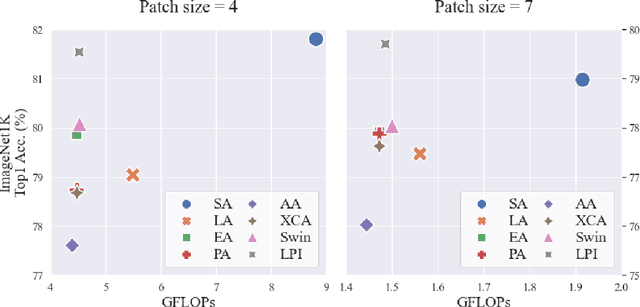Fair Comparison between Efficient Attentions
Paper and Code
Jun 01, 2022



Transformers have been successfully used in various fields and are becoming the standard tools in computer vision. However, self-attention, a core component of transformers, has a quadratic complexity problem, which limits the use of transformers in various vision tasks that require dense prediction. Many studies aiming at solving this problem have been reported proposed. However, no comparative study of these methods using the same scale has been reported due to different model configurations, training schemes, and new methods. In our paper, we validate these efficient attention models on the ImageNet1K classification task by changing only the attention operation and examining which efficient attention is better.
* 4 pages abstract
 Add to Chrome
Add to Chrome Add to Firefox
Add to Firefox Add to Edge
Add to Edge